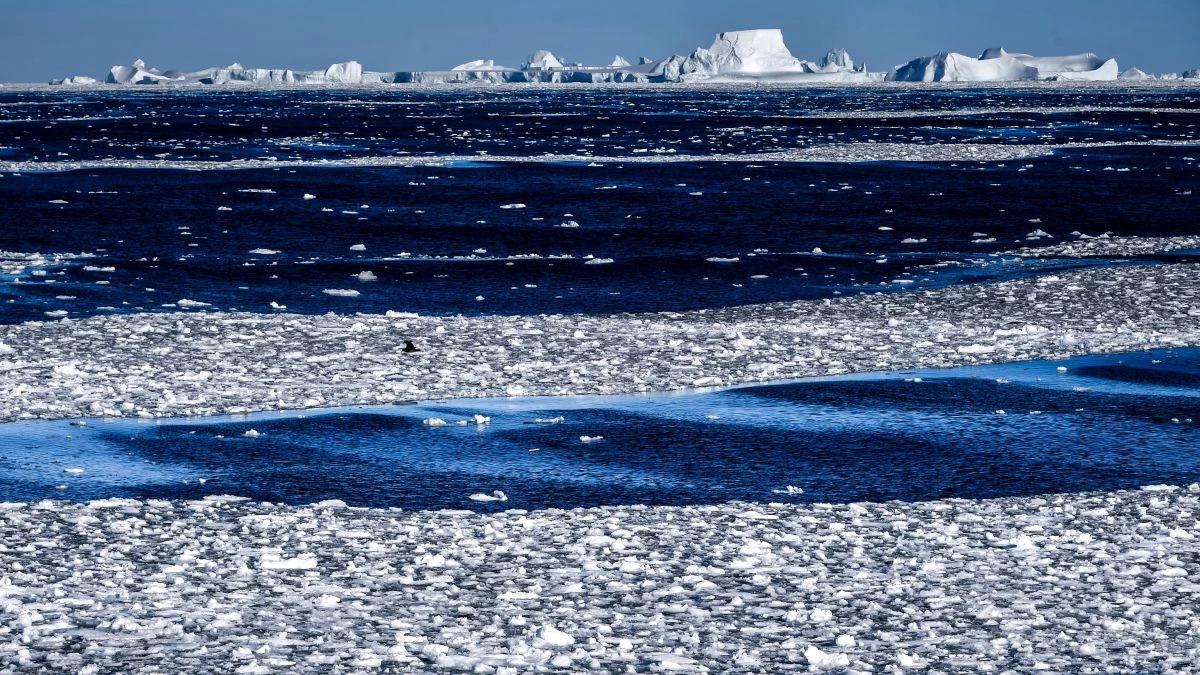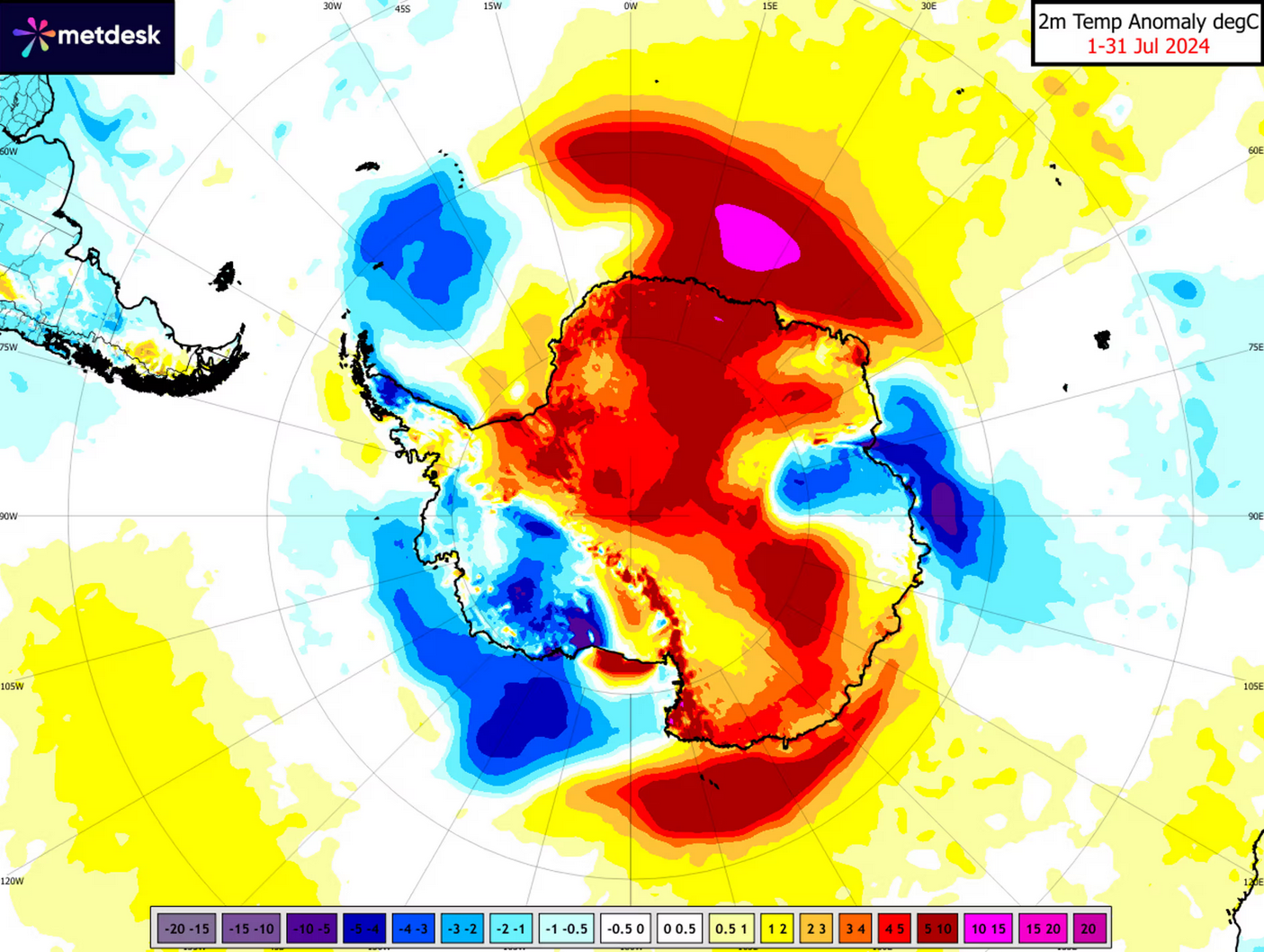Temperatures soar 10°C above average in Antarctic heatwave
 Ice shelf is seen from the deck of the Russian oceanographic research vessel Admiral Vladimirsky during an expedition to the shores of Antarctica.
(Photo by Alexey Kudenko via Sputnik/AP)
Ice shelf is seen from the deck of the Russian oceanographic research vessel Admiral Vladimirsky during an expedition to the shores of Antarctica.
(Photo by Alexey Kudenko via Sputnik/AP)
Ground temperatures in Antarctica have surged to unprecedented levels, with some days in July seeing temperatures 28 degrees Celsius (82.4 degrees Fahrenheit) above expectations.
Near-record heatwave hits Antarctic winter
Antarctica has experienced a dramatic rise in temperatures, with ground temperatures soaring an average of 10 degrees Celsius above normal over the past month.
This near-record heatwave saw some days in July reaching 28 degrees Celsius above expected levels, despite the continent being in midwinter darkness.
The globe has endured 12 months of record warmth, consistently exceeding the 1.5 degrees Celsius rise above preindustrial levels seen as critical to avoiding severe climate breakdown.
Michael Dukes, director of forecasting at MetDesk, emphasized the significance of the average monthly temperature rise over individual daily highs.
Usually, you can’t just look at one month for a climate trend, but it is right in line with what models predict
He warned that sustained winter warming in Antarctica could lead to the collapse of ice sheets.

Role of climate change
Climate scientists have long predicted that the most severe impacts of anthropogenic climate change would manifest in polar regions.
Zeke Hausfather, a research scientist at Berkeley Earth, explained that Antarctica’s heatwave has been a significant driver in the recent spike in global temperatures.
Antarctica has warmed along with the world over the past 50 years, and for that matter 150 years, so any heatwave is starting off from that elevated baseline
The recent heatwave marks the second significant event in two years, with the previous one in March 2022 leading to a 39°C spike and the collapse of a Rome-sized ice sheet.
The increased temperatures in July followed a particularly strong El Niño, contributing to the general rise in global temperatures.
Scientists attribute the proximate cause of the heatwave to a weakened polar vortex. Amy Butler, an atmospheric scientist at NOAA, described how interference from atmospheric waves weakened the vortex, raising high-altitude temperatures.
Future concerns
Jamin Greenbaum, a geophysicist at the University of California San Diego’s Scripps Institution of Oceanography, expressed concern for the future. “I have seen increasing melt through the years,” Greenbaum said.
Although I’m alarmed by these reports, I’m not surprised considering this is an expected outcome of climate change.
Jonathan Overpeck from the University of Michigan called the heatwave an “eye-opening sign that climate change is starting to transform the planet.”
Edward Blanchard of the University of Washington highlighted that reduced sea ice and a warmer Southern Ocean contribute to warmer winter weather over Antarctica.
Widespread effects, uncertainty
Jonathan Wille, a researcher at ETH Zurich, pointed to a weeks-long “southern stratospheric warming event” as a rare phenomenon influencing the continent’s surface conditions.
While more frequent heatwaves are being observed, Wille cautioned that the exact impact of the climate crisis on this event is still uncertain, pending further studies.



